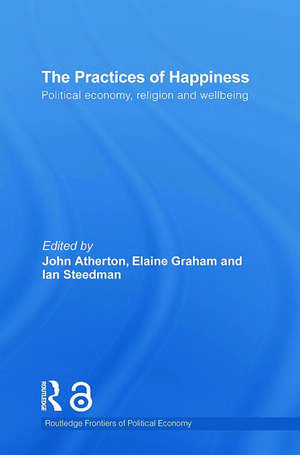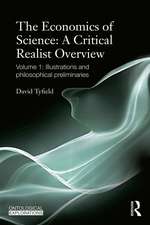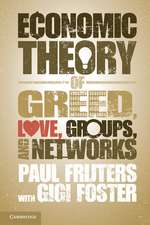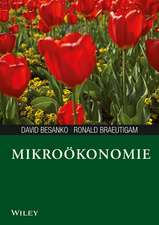The Practices of Happiness: Political Economy, Religion and Wellbeing: Routledge Frontiers of Political Economy
Editat de Ian Steedman, John R Atherton, Elaine Grahamen Limba Engleză Paperback – 11 noi 2013
There is growing evidence that rising levels of prosperity in Western economies since 1945 have not been matched by greater incidences of reported well-being and happiness. Indeed, material affluence is often accompanied instead by greater social and individual distress. A growing literature within the humanities and social sciences is increasingly concerned to chart not only the underlying trends in recorded levels of happiness, but to consider what factors, if any, contribute to positive and sustainable experiences of well-being and quality of life. Increasingly, such research is focusing on the importance of values and beliefs in human satisfaction or quality of life; but the specific contribution of religion to these trends is relatively under-examined. This unique collection of essays seeks to rectify that omission, by identifying the nature and role of the religious contribution to wellbeing.
A unique collection of nineteen leading scholars from the field of economics, psychology, public theology and social policy have been brought together in this volume to explore the religious contribution to the debate about happiness and well-being. These essays explore the religious dimensions to a number of key features of well-being, including marriage, crime and rehabilitation, work, inequality, mental health, environment, participation, institutional theory, business and trade. They engage particularly closely with current trends in economics in identifying alternative models of economic growth which focus on its qualitative as well as quantitative dimensions.
This distinctive volume brings to public notice the nature and role of religion’s contribution to wellbeing, including new ways of measurement and evaluation. As such, it represents a valuable and unprecedented resource for the development of a broad-based religious contribution to the field. It will be of particular relevance for those who are concerned about the continuing debate about personal and societal well-being, as well as those who are interested in the continuing significance of religion for the future of public policy.
| Toate formatele și edițiile | Preț | Express |
|---|---|---|
| Paperback (1) | 415.24 lei 6-8 săpt. | |
| Taylor & Francis – 11 noi 2013 | 415.24 lei 6-8 săpt. | |
| Hardback (1) | 1003.43 lei 6-8 săpt. | |
| Taylor & Francis – 22 iul 2010 | 1003.43 lei 6-8 săpt. |
Din seria Routledge Frontiers of Political Economy
-
 Preț: 309.90 lei
Preț: 309.90 lei -
 Preț: 309.79 lei
Preț: 309.79 lei -
 Preț: 316.03 lei
Preț: 316.03 lei -
 Preț: 310.95 lei
Preț: 310.95 lei - 9%
 Preț: 866.82 lei
Preț: 866.82 lei -
 Preț: 309.12 lei
Preț: 309.12 lei -
 Preț: 311.61 lei
Preț: 311.61 lei -
 Preț: 286.99 lei
Preț: 286.99 lei -
 Preț: 327.83 lei
Preț: 327.83 lei -
 Preț: 311.87 lei
Preț: 311.87 lei -
 Preț: 302.76 lei
Preț: 302.76 lei - 9%
 Preț: 938.48 lei
Preț: 938.48 lei -
 Preț: 152.67 lei
Preț: 152.67 lei -
 Preț: 151.97 lei
Preț: 151.97 lei -
 Preț: 318.54 lei
Preț: 318.54 lei -
 Preț: 317.95 lei
Preț: 317.95 lei -
 Preț: 310.01 lei
Preț: 310.01 lei -
 Preț: 326.49 lei
Preț: 326.49 lei -
 Preț: 155.44 lei
Preț: 155.44 lei -
 Preț: 309.79 lei
Preț: 309.79 lei -
 Preț: 328.76 lei
Preț: 328.76 lei -
 Preț: 281.72 lei
Preț: 281.72 lei -
 Preț: 286.58 lei
Preț: 286.58 lei -
 Preț: 386.12 lei
Preț: 386.12 lei -
 Preț: 353.78 lei
Preț: 353.78 lei -
 Preț: 325.09 lei
Preț: 325.09 lei -
 Preț: 310.55 lei
Preț: 310.55 lei -
 Preț: 387.03 lei
Preț: 387.03 lei -
 Preț: 324.87 lei
Preț: 324.87 lei -
 Preț: 312.86 lei
Preț: 312.86 lei -
 Preț: 374.16 lei
Preț: 374.16 lei -
 Preț: 329.09 lei
Preț: 329.09 lei -
 Preț: 348.22 lei
Preț: 348.22 lei - 28%
 Preț: 1047.06 lei
Preț: 1047.06 lei - 18%
 Preț: 1169.45 lei
Preț: 1169.45 lei - 18%
 Preț: 1555.17 lei
Preț: 1555.17 lei - 18%
 Preț: 1048.43 lei
Preț: 1048.43 lei - 18%
 Preț: 1059.84 lei
Preț: 1059.84 lei - 31%
 Preț: 767.47 lei
Preț: 767.47 lei - 18%
 Preț: 731.92 lei
Preț: 731.92 lei - 28%
 Preț: 822.54 lei
Preț: 822.54 lei - 18%
 Preț: 1796.21 lei
Preț: 1796.21 lei - 29%
 Preț: 1184.91 lei
Preț: 1184.91 lei - 18%
 Preț: 1120.23 lei
Preț: 1120.23 lei - 15%
 Preț: 700.95 lei
Preț: 700.95 lei - 18%
 Preț: 1116.31 lei
Preț: 1116.31 lei - 25%
 Preț: 299.52 lei
Preț: 299.52 lei
Preț: 415.24 lei
Nou
Puncte Express: 623
Preț estimativ în valută:
79.48€ • 86.36$ • 66.81£
79.48€ • 86.36$ • 66.81£
Carte tipărită la comandă
Livrare economică 21 aprilie-05 mai
Preluare comenzi: 021 569.72.76
Specificații
ISBN-13: 9780415746830
ISBN-10: 0415746833
Pagini: 304
Dimensiuni: 156 x 234 x 18 mm
Greutate: 0.41 kg
Ediția:1
Editura: Taylor & Francis
Colecția Routledge
Seria Routledge Frontiers of Political Economy
Locul publicării:Oxford, United Kingdom
ISBN-10: 0415746833
Pagini: 304
Dimensiuni: 156 x 234 x 18 mm
Greutate: 0.41 kg
Ediția:1
Editura: Taylor & Francis
Colecția Routledge
Seria Routledge Frontiers of Political Economy
Locul publicării:Oxford, United Kingdom
Public țintă
Postgraduate and UndergraduateCuprins
Introductory essay: developing an overview as context and future John Atherton Part 1: Political Economy 1. Economic theory and happiness Ian Steedman 2. Happiness, welfare and capabilities Carl-Henric Grenholm 3. Happiness through thrift: The contribution of business to human wellbeing Peter Heslam 4. Happiness, work and Christian theology Peter Sedgwick 5. Happiness isn't working, but it should be Malcolm Brown 6. Challenging inequality in a post-scarcity era: Christian contributions to egalitarian trends John Atherton 7. Fair trade and human wellbeing Michael Northcott Part 2: Contributions to Other Social Sciences 8. Religion and happiness: perspectives from the psychology of religion, positive psychology and empirical theology Leslie Francis 9. Ethnographic insights into happiness Jonathan Miles-Watson 10. Institutions, organisations and wellbeing Tony Berry 11. Religion, family form and the question of happiness Adrian Thatcher12. Mental health, spirituality and religion Peter Gilbert 13. The ‘one in the morning’ knock: exploring the connections between faith, participation and wellbeing Christopher Baker 14. Crime, wellbeing and society: Reflections on social, 'anti-social' and 'restorative' capital Christopher Jones 15. Supporting offenders: A faith based initiative Charlotte Lorimer Part 3: Reflections on Foundations 16. Human happiness as a common good: clarifying the issues Patrick Riordan 17. Being well in creation John Rodwell 18.The ‘virtuous circle’: Religion and the practices of happiness Elaine Graham 19 Well being – or resilience? Blurred encounters between theory and practice John Reader
Notă biografică
John Atherton is Canon Theologian Emeritus of Manchester Cathedral and Honorary Research Fellow of the William Temple Foundation and of Manchester University, UK, with doctorates from Manchester and Uppsala Universities. His research and publishing interests have increasingly focused on the relationship between political economy and religion.
Elaine Graham is Grosvenor Research Professor of Practical Theology at the University of Chester, UK, and was until October 2009 the Samuel Ferguson Professor of Social and Pastoral Theology at the University of Manchester, UK.
Ian Steedman has been professor of economics at Manchester University and Manchester Metropolitan University, UK. He has a longstanding involvement in microeconomic theory, the history of economic thought and in the intersections among economics, ethics and social thought.
Elaine Graham is Grosvenor Research Professor of Practical Theology at the University of Chester, UK, and was until October 2009 the Samuel Ferguson Professor of Social and Pastoral Theology at the University of Manchester, UK.
Ian Steedman has been professor of economics at Manchester University and Manchester Metropolitan University, UK. He has a longstanding involvement in microeconomic theory, the history of economic thought and in the intersections among economics, ethics and social thought.
Descriere
This new book brings together leading voices from the field of economics, theology and ethics to consider the contribution of religion to social capital, through critical dialogue with mainstream economics and other social sciences.










